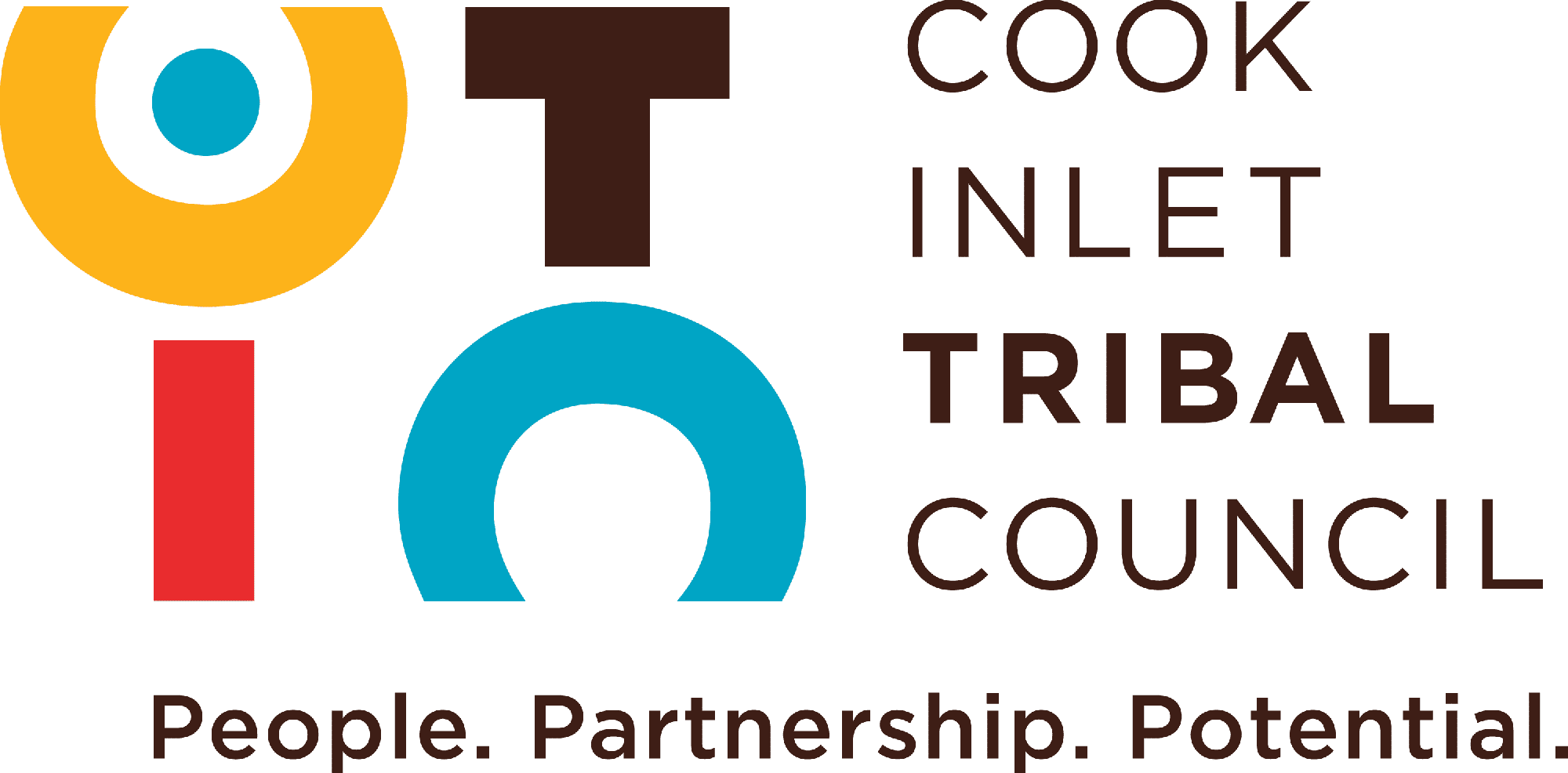13 Oct A New Generation of Yup’ik Speakers
Six years after starting Anchorage’s first early childhood Yup’ik immersion classroom, Clare Swan Early Learning Center embarks on a new phase of language preservation
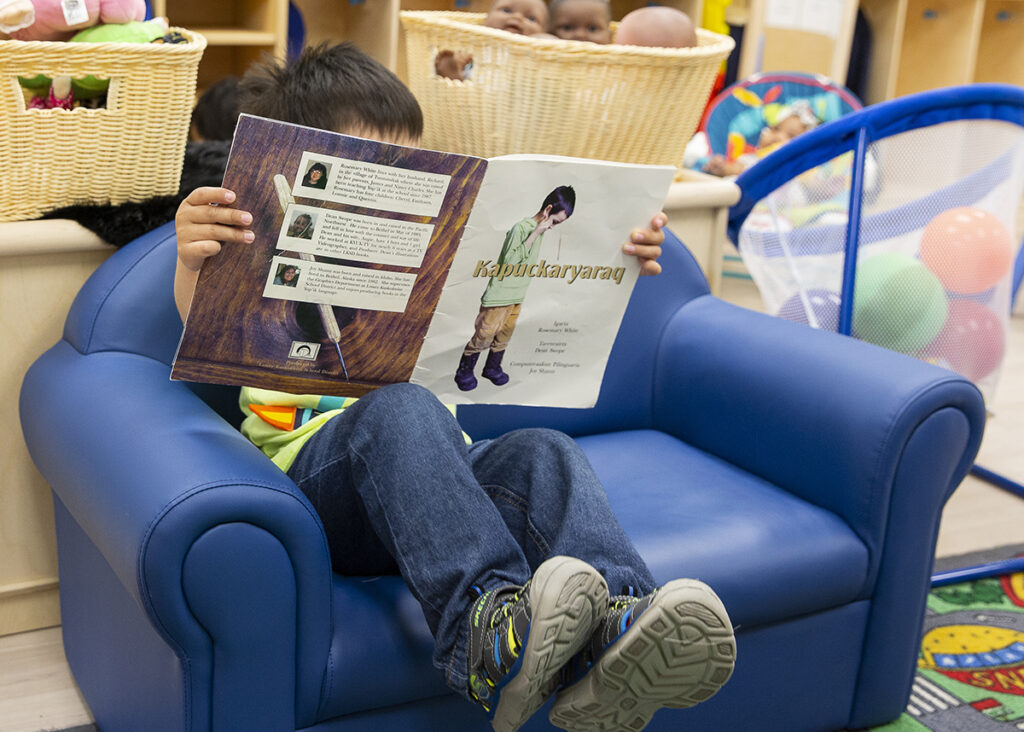
Not so long ago, Alaska Native children were sent from their villages to English-language boarding schools in Anchorage, where they were often forbidden from speaking their Native languages. In 2017, the Clare Swan Early Learning Center (CSELC) took a step toward revitalizing what was once lost when it created Anchorage’s first early childhood Yup’ik (Yugtun) immersion classroom.
Starting at just six weeks old, children in the immersion classroom are spoken to exclusively in Yugtun, a Yup’ik dialect spoken by Yup’ik people in southwest Alaska. Though Yugtun is currently spoken by between 10,000 – 13,000 people, the number of Yugtun speakers is rapidly declining. But by partnering with College Gate Elementary—and through a renewal of its Esther Martinez Language Nest grant from the Administration for Native Americans—CSELC is helping a generation of children and their families keep this language alive.
Marceleine Sherbick-Brown, two years old, is one of eight children currently enrolled in CSELC’s Yugtun class. Her mother, Mary, is from the Bristol Bay region and grew up learning Yup’ik; she studied it during her university years. But living in Anchorage, she worried that she couldn’t provide her daughter with full immersion in the language.
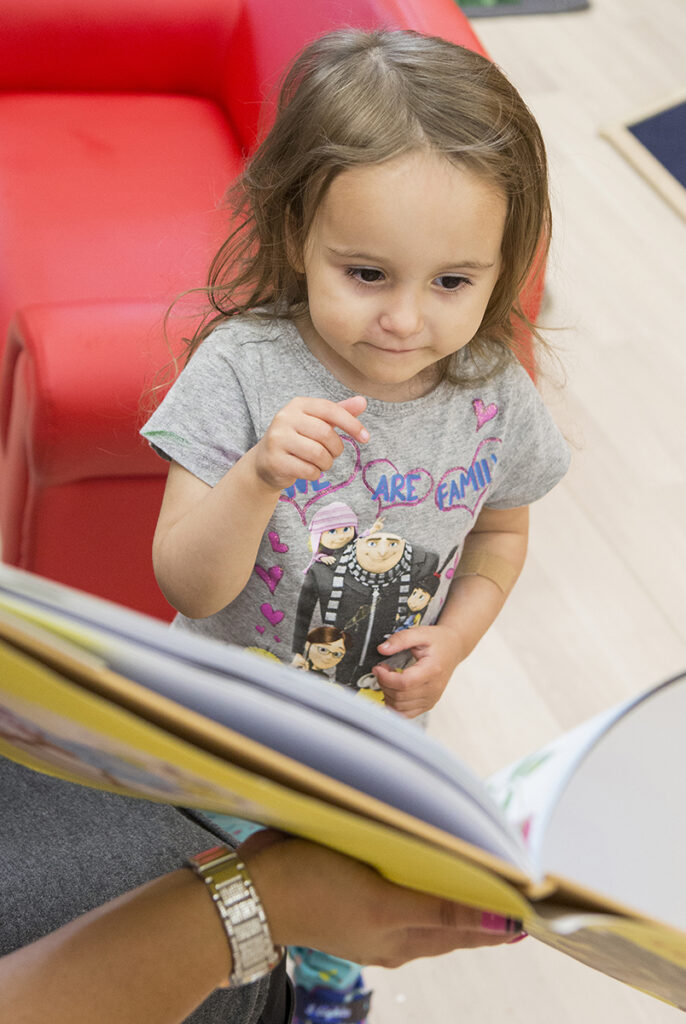
“Being in Anchorage, we don’t get out often to rural communities,” commented Marceline’s father, Howdice Brown. “It was important to us to have Marceline hear Yugtun from a very early age. When we heard about the Yugtun immersion classroom at CSELC, we requested to be on the waiting list right away.”
For other families, the class provides a crucial connection to culture. Josie Beavers and Chantal De Alcuaz enrolled their adopted son, Jude, age 2, in the class because “as white-presenting parents raising a Yup’ik son, we want to do everything we can to keep his connection to his birth culture alive.”
Three of Jude’s four biological grandparents are first-language Yugtun speakers. “Without CSELC, being able to eventually speak his Native language with his grandparents wouldn’t even be an option,” Josie said.
CSELC also takes language learning beyond its young students and involves the family and the community by providing a variety of resources and social opportunities. CSELC provides adult learning aids so parents can practice Yugtun with their children; staff also created a library of language videos accessible on YouTube that offer Yugtun words, translations, pronunciation, songs and stories.
“We have a lot of people from different school districts and different parts of Alaska who have told us the videos, especially, are very instrumental, not just for their kids, but for the family to learn together,” said CSELC Cultural Coordinator Piiyuuk Qungurkaq-Shields.
Despite the challenge of finding Yugtun-fluent teaching staff and the limitation of only being able to offer a single 9 a.m. – 4 p.m. class, CSELC provided 24 children with 315 hours of language immersion over the 2022/2023 school year. Those numbers reflect the first year of the center’s new language grant; in years prior, when data was gathered from both CSELC and College Gate’s programs, the partners were shown to have educated 261 children through 681 hours of Yup’ik/Yugtun language immersion.
This year, with a new five-year Language Nest grant, CSELC is bridging the gap for children like Marceline. By offering “Saturday school” for children ages three to five, CSELC provides continued language learning between its early childhood Yugtun immersion classroom (for children six weeks to three years old) and College Gate Elementary’s Yup’ik language classes (for students in kindergarten through fifth grade).
The additional opportunity to stay immersed in Yugtun will help children like Jude and Marceline—along with their families—deepen their connection to Alaska Native culture while helping to keep Yup’ik alive through the next generation.
Learn more about Clare Swan Early Learning Center here.
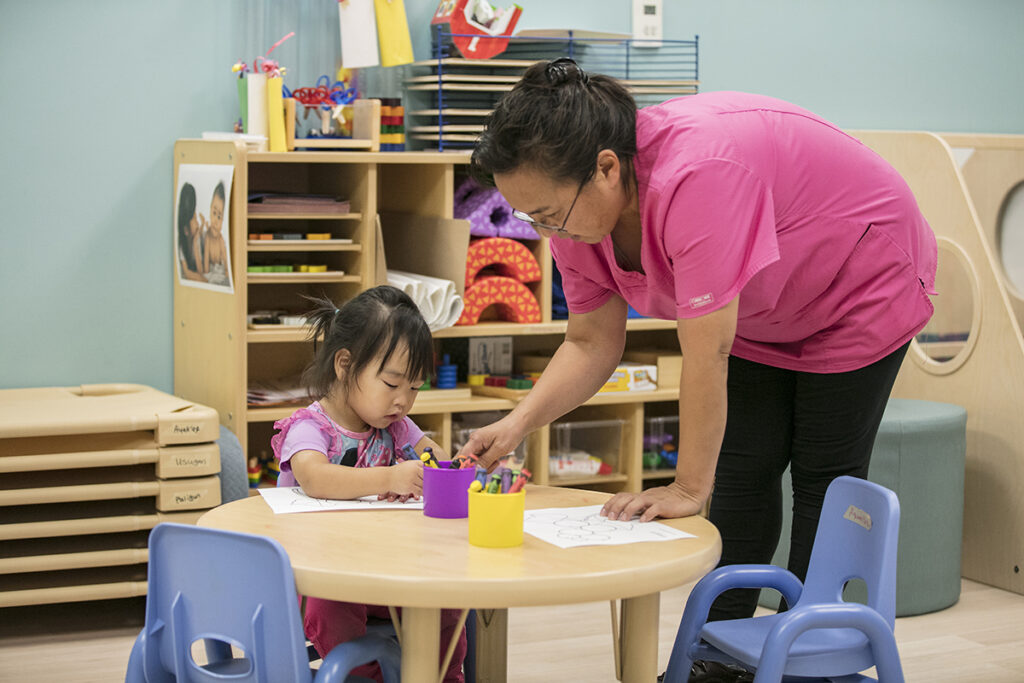
Check out this video highlighting how CSELC centers culture throughout its curricula, including in the Yup’ik (Yugtun) immersion program:
